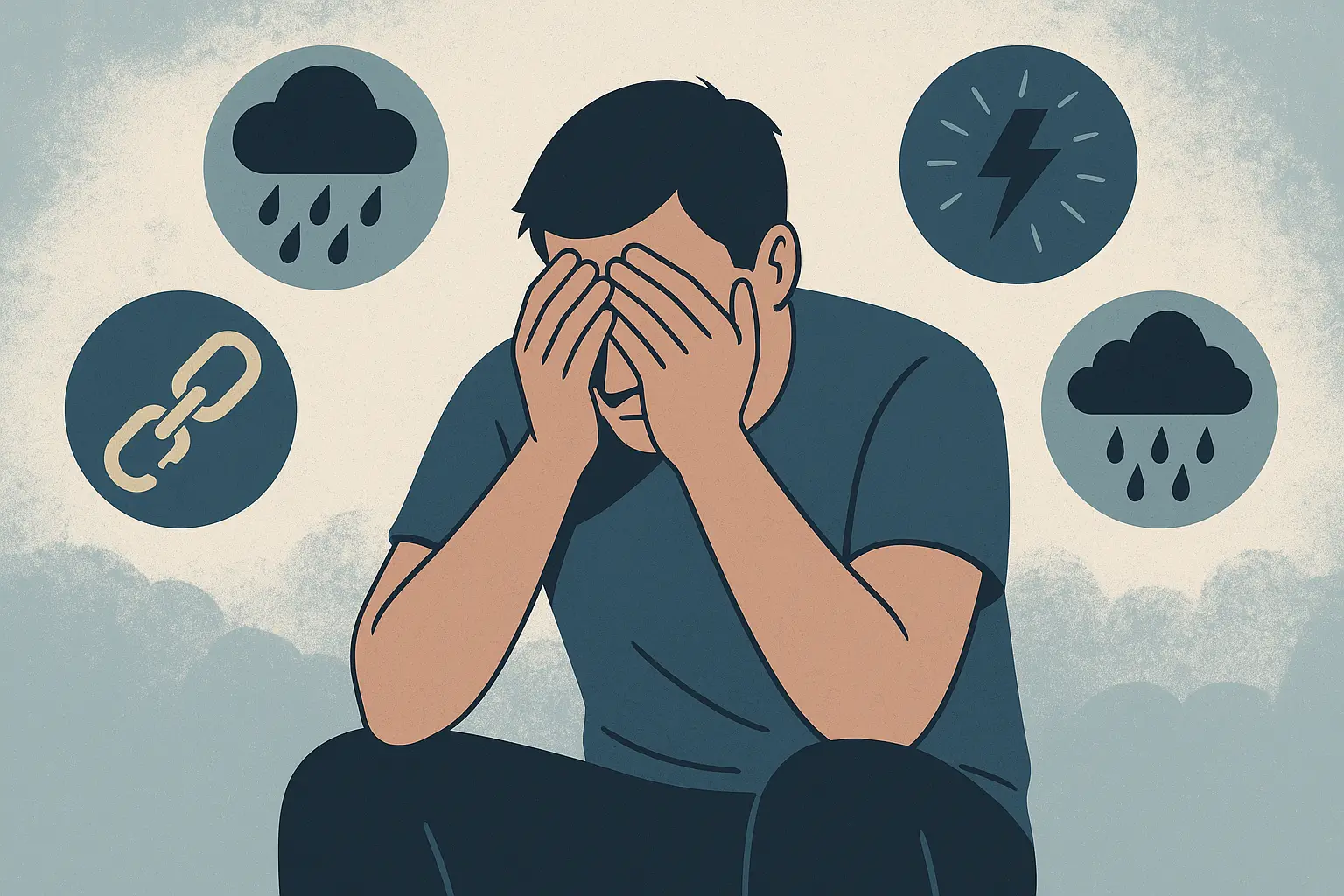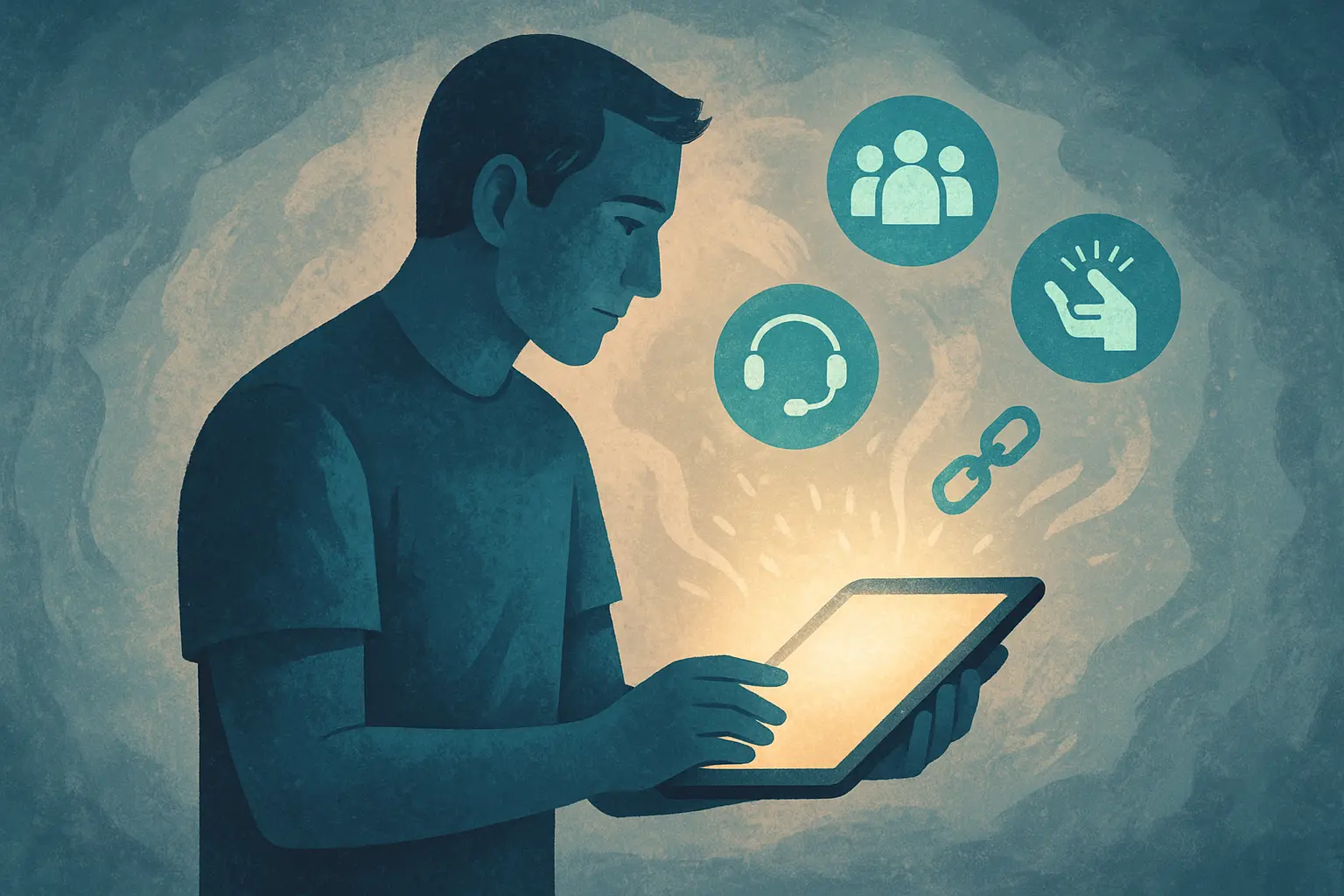In Pennsylvania, conversations about mental health are gaining traction, but for men, silence is still too common. Despite 1 in 10 men experiencing anxiety or depression, stigma and cultural expectations often keep them from seeking support. Phrases like “man up” or “tough it out” reinforce the belief that vulnerability is weakness, leaving many men struggling in isolation.
This silence has devastating consequences. Nationally, men are less likely than women to seek treatment but more likely to die by suicide. In Pennsylvania alone, 19.3% of adults reported depression in 2023, reflecting a rise in distress. Without adequate intervention, these numbers will continue to climb.
For those in need, individual counseling provides a safe and private space for men to process their struggles without judgement.
Common Mental Health Issues Affecting Men
Men in Pennsylvania face a variety of mental health challenges. While many overlap with women’s experiences, societal norms and stigma shape how men express or suppress their struggles.
-
Depression: Men often report depression as irritability, anger, or fatigue rather than sadness, making it harder to recognize and diagnose. Severe depression can lead to suicidal thoughts if left untreated.
-
Anxiety Disorders: Worry, tension, and sleep issues are common, and anxiety may push men toward unhealthy coping strategies like overworking or substance use.
-
Post-Traumatic Stress Disorder (PTSD): Common among veterans, accident survivors, and men who have experienced violence. Symptoms include nightmares, emotional numbness, and hypervigilance.

-
Bipolar Disorder: Intense highs and lows affect work, relationships, and daily stability. Men are often underdiagnosed until symptoms escalate.
-
Substance Use Disorders: Alcohol and opioid misuse are prevalent coping mechanisms among men, often worsening underlying mental health concerns.
Untreated, these issues do not just harm individuals; they ripple outward, impacting marriages, parenting, and workplaces. Family counseling can be vital when men’s struggles affect the entire household dynamic.
Barriers to Men Seeking Help
Despite growing awareness, several barriers prevent men from getting the care they need:
-
Stigma: Social pressure to appear “strong” keeps men silent.
-
Underdiagnosis: Irritability and aggression are often misinterpreted instead of recognized as signs of depression.
-
Geographic Gaps: Rural areas in Pennsylvania have limited mental health providers, forcing men to drive hours for care.
-
Financial Challenges: Even with insurance, therapy can feel inaccessible.
-
Cultural Barriers: Minority men may experience compounded stigma and limited culturally competent care.
Addressing these barriers requires innovative solutions, such as online counseling, which makes therapy more accessible to men in rural or underserved communities.
Promising Initiatives in Pennsylvania
Pennsylvania has taken steps to close mental health gaps, especially for men.
-
Connect with Tech: Distributed more than 12,000 tablets to rural communities, allowing men in isolated areas to access therapy and mental health apps.
-
Awareness Campaigns: June is recognized as Men’s Mental Health Awareness Month, with programs aimed at encouraging dialogue statewide.
-
Targeted Support for Men of Color: Local nonprofits provide free therapy and support groups, addressing cultural stigma head-on.
-
Community Engagement: Outreach teams visit community centers, veterans’ groups, and senior facilities to connect men with resources.
Initiatives like these emphasize that healing is not only possible but within reach, especially when combined with services like trauma counseling, which addresses unspoken pain many men carry.
Steps Toward Healing and Support
Breaking stigma means helping men see that seeking support is a sign of strength, not weakness. Here are essential steps:
-
Encourage Conversations: Normalize asking men how they are really doing.
-
Normalize Therapy: Position counseling as proactive care for the mind, like exercise for the body.
-
Expand Access: Teletherapy ensures that men with busy schedules or rural addresses are not excluded.

4. Create Safe Spaces: Peer support groups allow men to connect without judgment.
5. Promote Self-Care: Healthy routines, physical activity, and hobbies build resilience.
If relationships are strained, couples counseling can also help men strengthen communication and emotional connection.








